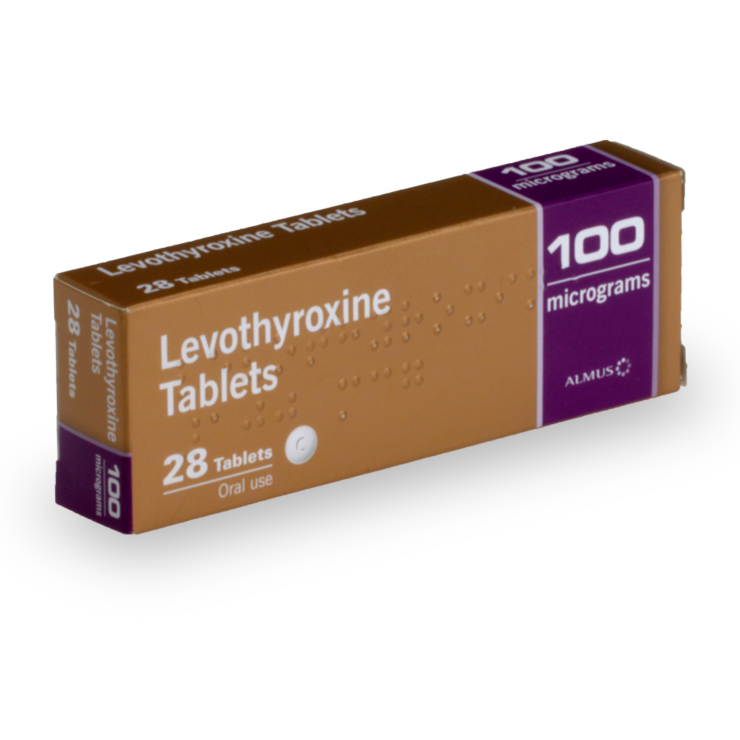

And this could mean you’re not getting enough thyroid hormone. Some medications, such as antacids, omeprazole (Prilosec), and phenobarbital, could lessen how well levothyroxine works. Levothyroxine can interact with different medications. Levothyroxine interacts with some medications and foods More often than not, a dose adjustment takes care of these symptoms. Your provider can help adjust your dose as needed. If you feel any of these side effects, talk to your healthcare provider. When the dose is too high for your body’s needs, you could feel any of the following symptoms: Most of levothyroxine’s possible side effects are dose-related. Levothyroxine is generally well-tolerated. Levothyroxine has some side effects to be aware of Keep in mind, it might take months and/or multiple dose adjustments to find the right levothyroxine dose for you. After this time has passed, your healthcare provider may check your thyroid levels and adjust the dose of your levothyroxine accordingly. It’s important to be patient and continue taking the medication as prescribed even if you don’t notice any changes.
#Levothyroxine and grapefruit full#
It may take 4 to 6 weeks to see the full effect of levothyroxine. You might not notice levothyroxine’s effects right away It’s not advised to switch between the two –– even if the products appear to be equivalent –– because your thyroid levels may fluctuate. It’s important to stick to the same generic product or the same brand-name product. There’s an ongoing debate whether brand or generic levothyroxine is “better.” One isn’t better than the other the answer is less about comparing the two and more about consistency in taking the same product. And unlike other brand and generic medications, they’re not easily interchangeable with generic levothyroxine. There are a number of FDA approved name-brand levothyroxine tablets available. Switching between brand and generic versions can be tricky The current recommendation is to take levothyroxine alone for hypothyroidism when possible. Some people have questioned whether replacing both T3 and T4 in hypothyroidism could be beneficial, but studies don’t show an advantage to doing that. There are also medications, such as liothyronine (Cytomel), that supply T3. That’s why they work so well when you don’t have enough thyroid hormone naturally.Īfter you swallow a levothyroxine tablet, it gets converted into T3, which is the active hormone that has an effect on the rest of the body. They have the same effect as the T4 hormone made by your thyroid gland.

Levothyroxine tablets are a lab-made (synthetic) version of the T4 hormone. It’s a lab-made version of the T4 hormone Just make sure to take it daily around the same time, separate from food and other medications. So, it doesn’t matter if you choose to take it in the morning or night.

Taking levothyroxine at bedtime has shown to be as effective as taking it 1 hour before breakfast. It’s best taken at least 4 hours after your last meal or after any doses of other medications or supplements. In this case, you can take levothyroxine every night at bedtime instead. That’s because it's absorbed into the body more easily on an empty stomach.īut this can be tough if you have an unpredictable schedule in the morning. You’ve probably heard the recommendation to take levothyroxine in the morning at least 30 to 60 minutes before breakfast. You can take levothyroxine in the morning or at night Now, on to more facts that will get you up to speed on levothyroxine. Your healthcare provider will help monitor thyroid hormone levels in your blood to determine the best l evothyroxine dose for you over time. It comes in 12 different tablet doses ranging from 25 mcg to 300 mcg. 10 things you should know about levothyroxineįirst, the basics: levothyroxine is an oral medication that’s taken once daily. And even though levothyroxine is one of the most commonly prescribed medications in the U.S., you may still have questions if you’re new to taking it. The good news is that taking the right amount of levothyroxine can help fix or manage these symptoms. You may also feel constipated or even have feelings of depression. When your thyroid levels are lower than normal, you can gain weight, feel tired, and find it hard to tolerate cold temperatures. Thyroid hormone is necessary to help your body use its energy correctly and keep your brain, heart, and other organs functioning as they should. It’s the first-choice medication for replacing or supplementing thyroid hormone in people living with hypothyroidism (underactive thyroid). Millions of people take levothyroxine (Synthroid).


 0 kommentar(er)
0 kommentar(er)
